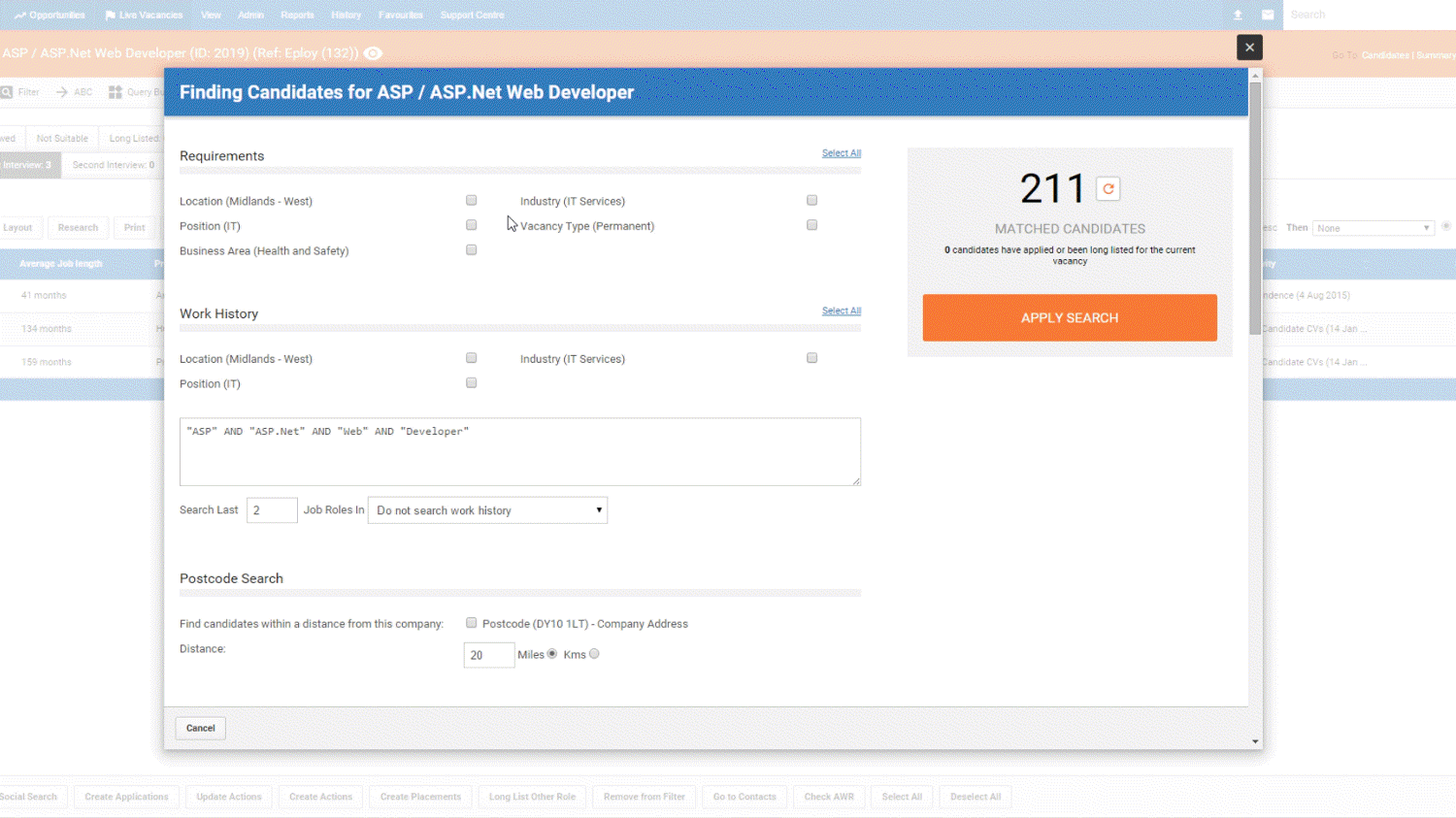The need to build business relationships with clients has always been key to a recruitment firm’s continued success. And while that fact hasn’t changed over time- other things have. Customer relationship management (CRM), for example, has moved on significantly. What was once a Rolodex is now a vast electronic database.
And while some recruiters yearn for “the good ol’days” and prophesise the downfall of the recruitment CRM, the majority of modern recruiters rely heavily on their software. From call logs to big data- recruitment software can keep track of lots of information (quite how much depends from agency to agency, but certainly more than a Rolodex). Technology frees up Recruitment Consultants to build new business and manage existing client relationships more readily.
But is you recruitment CRM keeping up with the competition? And for the record- keeping up with the competition doesn’t always mean releasing new features every six months. It means optimising the existing core features- making them more intuitive, more flexible or more powerful.
In this blog series we’re examining the importance of these core features. We will explore which features should be at the core of all recruitment software. We will explain their benefits, how they work and how they should be refined and optimised for the modern recruitment firm.
In this article, we will look at how recruitment software enables Recruitment Consultants to win more business and manage relationships effectively.
Correspondence Logs
While technology has changed large parts of the recruitment function, one stalwart has barely changed since the 1970’s and 80s: the telephone. And while the wires have been removed and a metric tonne of apps added, recruiters still rely heavily on being able to contact candidates and prospective clients by dialling their digits.
Recruitment software now supports recruiters in the recording of these calls. Correspondence logs should either be recorded automatically or they should be used immediately after a conversation to record the details. Correspondence logs create an auditable, digital trail that form the basis of how a consultant builds a relationship with a prospective customer.
For the modern recruitment firm, however, it isn’t enough to simply record phone activity. It is important to recognise the importance of recording all types of correspondence. Recruitment is, after all, increasingly reliant on multichannel correspondence. Email, text message and social media correspondence should all be recorded in the CRM. Recruitment software should allow for these different types of correspondence to be recorded and reported on. This allows recruitment consultants to easily report on which type of correspondence works best.
Follow Ups
For a Recruitment Consultant to win new business on the first correspondence is unlikely (although not unheard of!). But for those you that dwell in the mortal world, you will need several touchpoints with a prospective client before winning new business. One way to make sure these touchpoints are achieved within the desired timeframe is to set reminders right in the recruitment CRM.
Sure- a Consultant could potentially remember to call one or two prospective clients back at the right time. But in order to optimise efficiency and manage several call-backs a day, a Recruitment CRM needs a ‘Follow Up’ reminder system.
This reliable system allows recruiters to manage relationships in a more timely and structured fashion depending on a client’s needs and preferences. Scheduled follow ups, have thus become an essential element for modern recruiters.
Query/Search Builder
If a recruitment CRM is the modern Rolodex, then a Query Builder is the proverbial finger, ready to give that database a spin and find the right selection selection of contacts. It filters through your database in a matter of seconds and returns results based on your criteria. Finding prospective customers and target lists that are already in your recruitment database managing them allows recruiters to create a dynamic target list and contact them individually or en masse.
The Query Builder is one of the most frequently utilised tools in any recruitment CRM. It should be characterised as both powerful and flexible- able to search on any number of fields for whatever information you need to pinpoint the best contacts, candidates and companies – of course, it needs to be quick and it needs to be accurate.

Dashboards
Like any business endeavour, you need a base- a place you can conduct your campaign from. Thanks to cloud recruitment software, this “base” no longer needs exist in the physical realm. Dashboards are the digital basecamp, from where you can plan and deploy your campaign with razor sharp precision. A recruitment CRM should allow you to create a target list and manage it from your dashboard. Set follow-ups and view them on your dashboard. View and respond to emails- measure successful and not-so-successful correspondence- all from your dashboard!
A recruitment CRM will never replace an experienced and skilled Recruitment Consultant in winning new business. But a recruitment CRM can free up precious time in the working day for Consultants to focus on building more meaningful relationships with prospective clients.